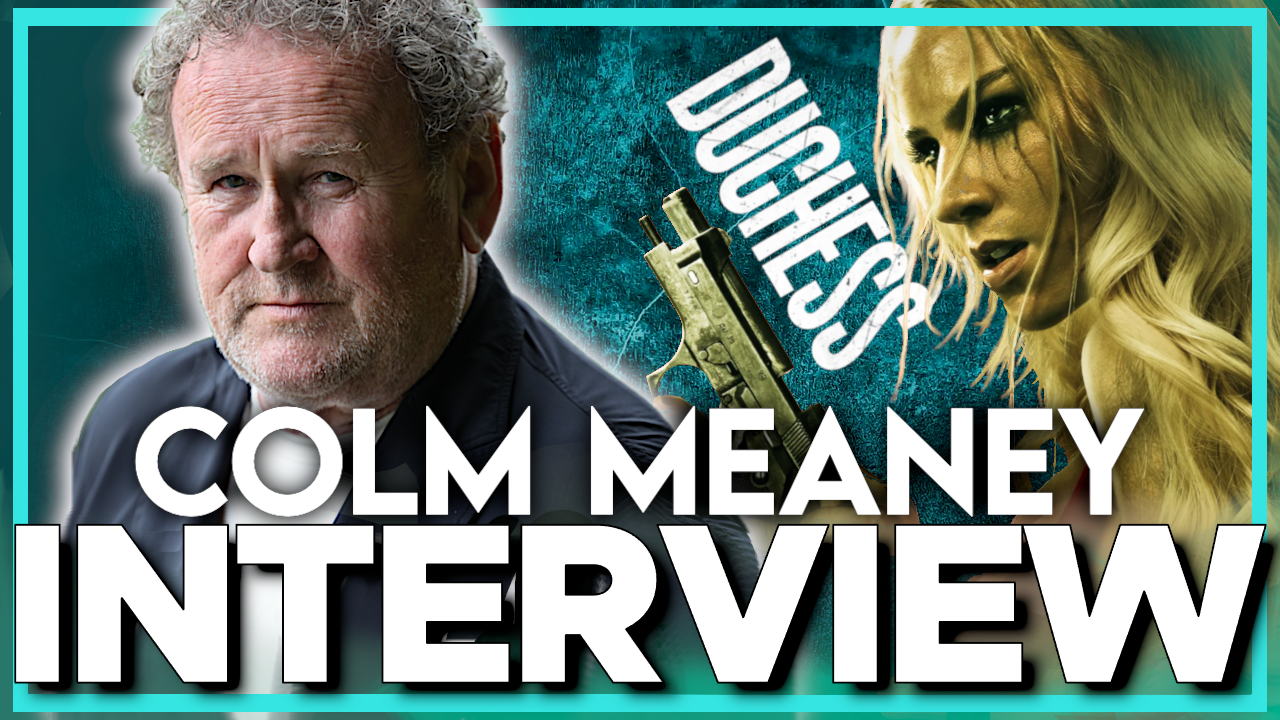Colm Meaney on Gangsters, Grumps and Star Trek’s Legacy
A workhorse in the industry, Meaney looks back at his recent role in Dutchess, while looking to the future of Irish film.
There are few actors working today who have both global experience and yet a distinctive national identity such as Colm Meaney. The Dublin born actor, who has made a name for himself both within massive American productions and Irish independent gems has been a staunch supporter of the performing arts in a myriad of ways, starting his career in politically driven theater, finding mainstream success in network science-fiction all while becoming an ambassador for the homegrown film industry.
Meaney now sits in his beautiful Spanish home, in the heart of Mallorca amidst a heatwave, to chat about his new film, ‘Dutchess’ - a film that in itself is a global endeavor, featuring a trans-Atlantic cast. The film, produced by Saban films and helmed by director Neil Marshall follows the ultra-violent exploits of Scarlett (Charlotte Kirk), a small-time pickpocket who falls in love with a charming rogue, Rob (Philip Winchester), only to discover Rob is a major player in the underground.
Meaney plays Frank Monaghan, Scarlett’s lowlife jailbird of a father in an impactful but albeit brief scene which gives insight into Scarlett’s past. Meaney is no stranger to putting on the suit of an criminal underground player (or in the case of Dutchess, a prison issue blue polo), as he’s worked with Matthew Vaughn in the Daniel Craig lead Layer Cake. Meaney also admits that while he’s not actively seeking out these larger than life Guy Ritchie inspired bad boys, he also has two projects (Dutchess and a Belgian series, Safe Harbor) being released this year where that’s his role. So is it a trend, or something he actively seeks out?
“I think, in my opinion, I respond to good writing, and I've been very fortunate in that way.” Meaney admits. “I've managed to find decent, wonderful scripts to do. So, I'm not sure that I go looking for the sort of the crazed gangster roles so much, but they're certainly interesting to play. It takes you completely out of your world, and out of the normal world, into this kind of very extreme situation where violence is part of the game”.
Watch the full interview with Meaney below, or scroll to continue to the article.
Those aforementioned wonderful scripts have also made Meaney the unofficial lord of playing working class stiffs. Not only his long standing role as Chief Miles O’Brien in Star Trek: The Next Generation and Deep Space Nine, but his triumvirate of characters in Roddy Doyle’s Barrytown trilogy gave Meaney a great sense of relatability. But there might be a secret ingredient to all of those ‘Everyman’ characters that make them so empathetic.
“I think the grumpiness is just me”, Meaney laughs.
Granted, it was this writer’s choice of that specific word, not Meaney’s, but the actor does admit, it is certainly a part of him, and a thread that often comes out of his characters.
“I think we all go through our lives and every day we're never really fully satisfied with things. Are we? There's always something fucking wrong. I know I'm certainly like that” Meaney divulges. “I suppose I do introduce that into some of the characters in terms of grounding them a bit, but I'm just trying to make them real”.
Even when traversing larger than life Ritchie-esque dialogue, or trekking through the stars, Meaney always manages to escape cliches. He’s been a steadfast envoy for combatting Irish stereotypes, which Meaney believes have plagued film and television for more than half a century. There is hope, however, and while Meaney doesn’t necessarily see the Irish film industry competing with Hollywood, true representation of modern Ireland starts with those aforementioned blue-collar heroes.
Meaney (front) in The Snapper
“I think it sort of started with films I was involved in, like The Snapper, The Van, and The Commitments. I think those were very accurate pictures of Ireland at the time, and, ironically, we got a lot of blowback from Irish Americans, because they felt we were doing Ireland a disservice. You point out to them we're not making films for the tourist board, we're making films for initially, an Irish audience, and hopefully a wider audience”.
So what about the future of cinema from that tiny, beautiful island? Like many of the smaller nations struggling to find a global voice, and being overshadowed by what Meaney rightfully deems a “large Imperial neighbor”, the future resides in embracing the past. The future resides in maintaining the culture.
“We have a great literary tradition. We have a great oral tradition. We have a great music tradition, and they all feed into cinematic art as well.” Meaney boasts. “Something that's really exciting to me is the emergence of Irish language films. ‘Bring Them Down’ which is at the Toronto International Film Festival is a bilingual film, and most of my dialogue was in Irish. And of course, you had 'An Cailín Ciúin' last year - 'The Quiet Girl', which was so successful in the Oscars.”
But, since so many people became a fan of Meaney’s work because of O’Brien - it’s not the future of Irish film that many are looking to. It’s more likely the 24th century. With Star Trek: Picard showing that so many fans are interested in the TNG era Star Trek properties, and with Star Trek: Legacy being teased, the question was posed to Meaney in the blistering Spanish heat - would he ever roll up the sleeves of O’Brien again?
“Never say never” says Meaney, but for now, this workhorse has to get back to work, as he always does, and promote his next project at TIFF.



